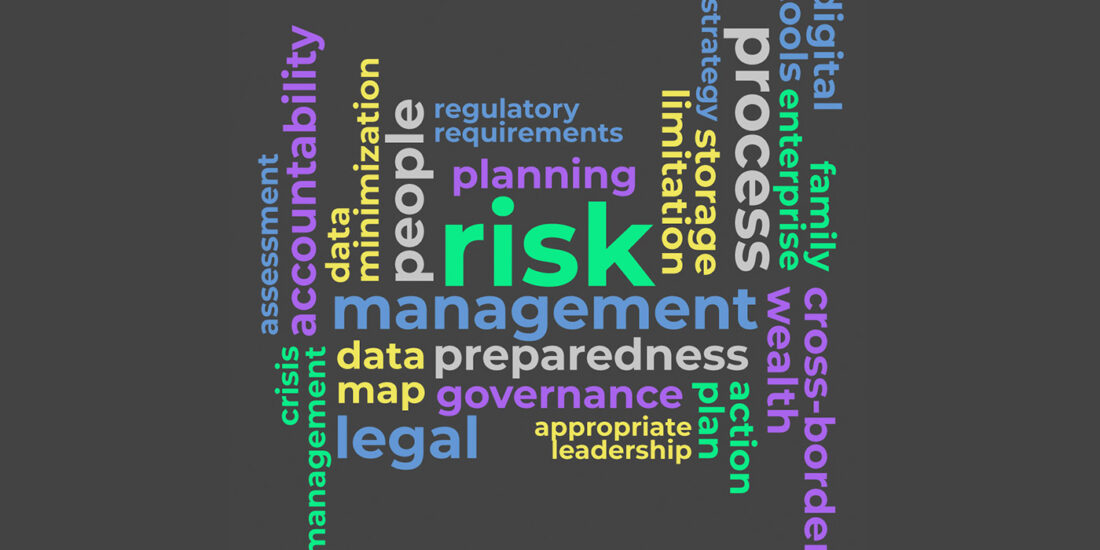A Lawyer’s Dozen: 13 Roles lawyers play for family enterprises
Choosing a lawyer for a family enterprise engagement is not a simple matter. In advising family enterprises, lawyers play at least 13 roles, involving different skills, experience, approaches and temperaments. Advisors to family enterprises – whether based in finance, accounting, insurance, management consulting, therapy, or indeed law itself – should help their clients think through the complex factors involved in deciding what kind of lawyer would be most suited to the particular tasks at hand. One lawyer may play a number of these roles, of course, but it is important to be clear with the client about which may be appropriate to the particular situation.
- Gladiator: One may think of this role first – the fighter for my side, the effective player in an adversarial system, the litigator who will either initiate or defend a lawsuit. The litigator needs to be quick to hear and respond to the arguments of the other side and keep proceedings focused on the client’s desired outcome. Of course most lawsuits never go all the way to trial, so the gladiator should also have the ability to make mid-course corrections and, very likely, attempt to negotiate a settlement. Some gladiators are more skilled at the fighting than at the negotiating.
- Chess Player: Many lawyers, especially litigators, conceive of their role as outwitting their opponent, move-by-move – always in the interest of achieving the best outcome for their client. The moves are generally carefully arranged, from an informal phone call to the lawyer for the other side; to a letter demanding a particular result (often an amount of money); to the filing of litigation; to discovery requests for documents and responses to questions; to motions for dismissal or summary judgment (decisions based on legal argument not disputed facts); to attempts to negotiate a resolution. At times, the interests of the client are best served by calculated moves in a game; at other times, the basic interests of the client – for example in engaging in direct communication with the other side about the essentials of the issue – may be minimized.
- Dealmaker: This lawyer is a negotiator of a transaction, simple or complex, with the skills to draft documents clearly, marshal arguments persuasively, and often be the “glue” that can hold the deal together, effectively bringing parties to agreement. The gladiator and the chess-player should have some of the skills of the dealmaker, or at least know where to find someone who can supply them. Most transactional lawyers are constantly negotiating deals. They tend to contemplate litigation only in extreme circumstances, when impasse seems impossible to overcome by negotiations; if litigation is required, the dealmaker may involve another attorney with special litigation skills and temperament.
- Architect: Creator of corporate or governmental structures, ownership documentation, shareholder agreements, governance arrangements, voting requirements, and other systems. The lawyer-architect needs to know the pros and cons of various choices of legal structure (corporation, partnership, trust, joint ventures, tax entities, etc.), understand how the various pieces fit together, and provide broad guidance to the client – taking into account both short- and long-range issues. Flexibility to change such structures over time is important in family enterprises, especially as they evolve over several generations. Flexibility is also a factor to keep in mind as the lawyer works with the client to establish the basics.
- Engineer: Designer of forms and systems for leases, vendor contracts, employment agreements, procedures for annual meetings – all the standard transactions that make an enterprise work efficiently. Standard forms and procedures can be a way to avoid having to re-invent the wheel, while maintaining flexibility to adjust to special circumstances.
- Gatekeeper: The conscience of the organization with the responsibility to steer intended action in a legal – and away from an illegal – direction. The gatekeeper has the authority to command attention and is the occasional naysayer who stands in the way of an executive who may pay insufficient attention to the requirements of the law, whether contractual, statutory, regulatory, or court-determined. The ability to say “no” should be combined with the skill to help the client find a legal way to accomplish the client’s objectives.
- Enforcer: The person charged with requiring compliance with ethical and legal requirements – avoiding insider-trading, establishing fair employment policies, establishing systems to identify and avoid conflicts of interest. The enforcer generally has the authority to make a binding decision, as compared with the gatekeeper, who makes a recommendation pointing in one direction rather than another.
- Parliamentarian: The person skilled at designing procedures with both the appearance and reality of fairness, impartiality, transparency, decisiveness and authority – with respect for both majorities and minorities. Formal procedures are needed even in family enterprises where informality may be the norm, because inattention to procedural requirements can appear later as major problems – for example, if the interests of family members begin to diverge.
- Problem Solver: The objective analyst of problems with the skill to understand the issues, weigh options, point out advantages and disadvantages, and generally apply those intellectual standards lawyers are supposed to have in their DNA – including relevance, clarity and rationality. The problem solver engages the client and opposing sides in staying focused on finding a solution.
- Navigator: Identifier of risks, with the ability to steer between rocks and hard places, avoid the shoals, and chart a course that seeks to minimize risks and maximize benefits. There is a particular set of skills that enables lawyers to see potential “horrors” down the road and recommend ways to avoid them. Lawyers may have this navigation skill to a greater or lesser degree.
- Wise Elder: The counselor who knows the family and the enterprise well, perhaps having designed estate plans and assisted in the creation of the enterprise, gathering insights into the whole family over time. It is important that the lawyer as wise elder be acutely aware of when he or she is beginning to represent people in the enterprise who have conflicting interests, and insist they obtain individual counsel. Unless there is specific, informed consent, the attorney faces the risk of a charge of malpractice for representing conflicting interests, even if the well-intentioned attorney is trying to help the whole family patch things up and move on. When that effort is unsuccessful, the risks are substantial.
- Peacemaker: Justice of the Peace is still a meaningful title to describe a lawyer who is charged with helping to create peace. Some lawyers are adept at building consensus among seemingly warring factions, mediating difficult disputes so the parties reach agreement, and practicing the challenging skills of collaboration.
- Umpire: Sometimes it is necessary to refer a dispute to a person with authority to make the final call – whether a judge in a courtroom, arbitrator, or corporate or governmental decision maker. Essential requirements for this role are the ability to listen to different sides, assess evidence, and make decisions with impartiality, clarity and authority.
By understanding these various roles and considering what mix of legal skills and approaches the family enterprise needs to deal with particular challenges, it can obtain the most effective and efficient advocacy and counseling. The wrong lawyer can be a disaster; the right one can be a savior. The family enterprise practitioner can be key to helping the family make the right decision in sorting through these complex, important choices.
About the contributor:
 John G. Wofford, Esq., is a mediator, facilitator, and arbitrator with his own practice based in Cambridge, MA. He provides impartial dispute resolution services, often in a highly-charged, multi-party context in a wide range of subject areas, including family business and other family enterprises, commercial, construction, employment, estate, finance, insurance, intellectual property, real estate, and small business. An FFI Fellow, he is a former member of the FFI board of directors. Jack can be contacted at johnwofford@earthlink.net
John G. Wofford, Esq., is a mediator, facilitator, and arbitrator with his own practice based in Cambridge, MA. He provides impartial dispute resolution services, often in a highly-charged, multi-party context in a wide range of subject areas, including family business and other family enterprises, commercial, construction, employment, estate, finance, insurance, intellectual property, real estate, and small business. An FFI Fellow, he is a former member of the FFI board of directors. Jack can be contacted at johnwofford@earthlink.net
Jack will be presenting two sessions at the global conference in October; “A Changing World: Lesbian, gay, bisexual and transgender (LGBT) challenges for family firms and their advisors” and “Conflict, Decisions and Change: Challenges for the consultant.”




